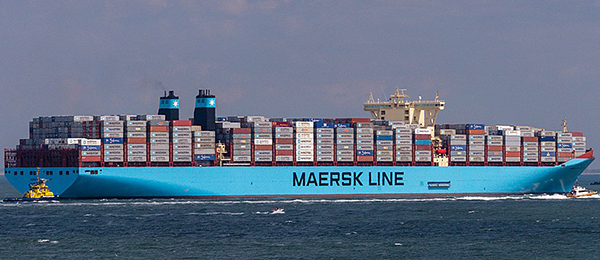According to published accounts of a presentation given to investors by Denmark's A.P. Moller-Maersk, the company intends to “transform” its logistics and supply chain model to compete with package delivery behemoths like UPS and Fedex. “Good luck with that,” says Foster Finley, Managing Director, of the consultancy, AlixPartners.
“While we have the greatest respect for Maersk and its superb business culture, this represents a huge break out of its core competency,” said Finley. “Furthermore, they don't have the shipper relationships that have been nurtured over the years by the world's largest integrators.”
A more realistic scenario, said Finley, would for Maersk to concentrate its “last mile” strategies in U.S. mega-port cities like Los Angeles/Long Beach; New York/New Jersey; Charleston; and Savannah.
“Reaching consumers and DCs in these metropolitan centers could work well for Maersk,” he said. “But what about Atlanta, Chicago, Indianapolis, and a whole host of more remote second-tier cities?”
For that to happen, he admits, Maersk would have to drive multiple deals with 3PLs who could provide the rolling assets and warehousing to compete on a massive scale.
Meanwhile, Maersk is acknowledging that being the biggest container line in the world is not enough, as the dynamic growth in e-commerce is driving demand for more agile deliveries.
To that extent, Maersk has already made a celebrated move to partner with IBM to create an industry-wide blockchain-based trading platform. As reported in SCMR, this may provide more value-added services in areas such as freight forwarding and trade finance.
SC
MR


Latest Supply Chain News
Latest Podcast

 Explore
Explore
Business Management News
- Strengthening customer fulfillment: Building a strategic stakeholder network
- The hard job of teaching soft skills
- Trump picks former Wisconsin congressman Sean Duffy for DOT secretary
- Made in Mexico, manufactured by China
- Retail sales see gains in October, reports Commerce and NRF
- Balancing green and speed: Home delivery insights from the pandemic era
- More Business Management
Latest Business Management Resources

Subscribe

Supply Chain Management Review delivers the best industry content.

Editors’ Picks





